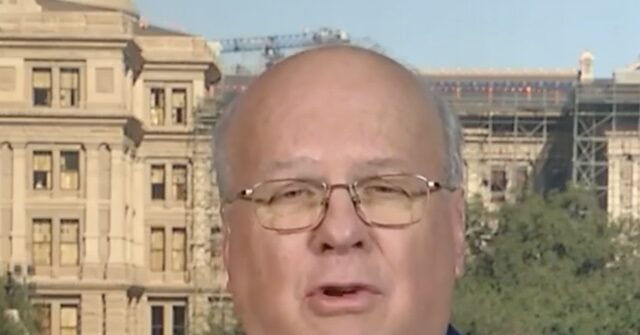On Fox News Channel’s “America Reports,” Republican strategist Karl Rove expressed strong criticism of Democrats who allegedly participated in a cover-up concerning President Joe Biden’s mental decline. His remarks came following host Sandra Smith’s inquiries concerning those who had portrayed the president as vibrant and capable of serving another four years in office. Rove condemned these individuals, suggesting that they were not just misleading the public but were also failing in their duty to the country, the president, and the Democratic Party itself. His comments highlight a growing concern about political loyalty overshadowing the necessity for honesty and accountability in leadership, especially during delicate times when the nation faces significant challenges.
Rove emphasized that key Democratic figures, including strategists David Axelrod and James Carville, had raised concerns over Biden’s fitness for reelection long before the presidential campaign began. According to Rove, the Biden administration reacted defensively, even resorting to leaking disparaging remarks about Axelrod to maintain their narrative of the president’s capability. This defensive posture, according to Rove, was indicative of a deeper issue within the Democratic ranks—an unwillingness to confront uncomfortable truths in favor of preserving political power. He framed this unwillingness as a disservice not only to Biden but also to the integrity of the office of the presidency.
The conversation pointed to a broader issue: the ethical implications of manipulating public perception in politics. As Rove stated, those close to Biden, including family and senior aides, engaged in actions that could be characterized as selfish. This self-interest not only jeopardizes the well-being of the president but also endangers the public’s trust in political institutions. Rove asserted that such behavior has particularly severe consequences during times of crises, as a leader must be fully capable and responsive to challenges domestically and internationally. The risk of having an incapacitated leader is exacerbated in an era where geopolitical tensions and domestic issues require strong decision-making and clear leadership.
Rove’s address serves as a stark reminder of the responsibilities that come with political leadership. He suggested that by failing to address Biden’s mental acuity publicly, Democrats allowed a narrative to persist that could potentially undermine the entire political system. The implications of this viewpoint raise critical questions about the nature of political loyalty and the responsibilities of party members toward not just party ideology but the country as a whole. In essence, he conveyed a cautionary message about the perils of prioritizing party politics over national interests.
Furthermore, the unfolding dialogue around Biden’s fitness may have larger ramifications for the Democratic Party as it heads into an election cycle. With many Americans increasingly attentive to issues of mental health and leadership capability, Rove’s statements resonate with a public sentiment wary of ineffective governance. His remarks invite a reflection on how political parties should navigate internal debates about the fitness of their leaders. The situation highlights a crucial intersection of ethics and politics, suggesting that transparency is essential for maintaining public trust and ensuring effective governance.
In conclusion, Rove’s criticisms are not merely about Biden’s fitness for office but serve as a broader indictment of a political culture that sometimes opts for silence over accountability. The ethical responsibilities of leaders and their associates to the public cannot be understated, as these obligations directly impact the effectiveness of governance and the public’s faith in the political system. As the nation prepares for future challenges, the implications of this discussion will linger, prompting ongoing reflection on the delicate balance between loyalty to political figures and the commitment to the country’s welfare.

